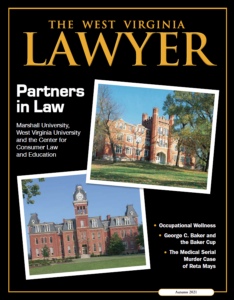The State Bar has become aware of fraudulent schemes that have targeted lawyers’ client trust accounts throughout the country. From email that the ADO has received from its counterparts in other states, there appear to be two variations that have been used during the last few months. The first scheme is an advance fee “confidence scam” which involves what purports to be a business proposal from officials of a foreign government or foreign business. Typically the lawyer receives an unsolicited email from a company in China (or other location in Asia). The email states that the sender has found the lawyer’s name in an online legal directory The sender then advises the lawyer that he (or she) would like to retain the services of the lawyer to collect a judgment from a local business. The lawyer then performs some preliminary research and determines that the local business is a legitimate business. A contingency agreement is entered into. Within days, and prior to a demand letter being sent, the lawyer receives a cashier’s check from the local business for a large sum of money (normally several hundred thousand dollars) towards the judgment, with a note explaining the purpose of the check. The check appears to be from a local bank The lawyer then deposits the check into his/her client trust account. The Chinese business then contacts the lawyer and advises that the business needs all (or a portion) of the settlement proceeds immediately to cover on-going business expenses. The lawyer is advised that he/she can retain his/her contingency fees from the amount that is requested to be transmitted to the Chinese business. The lawyer then calls the bank in which he/she is holding client trust funds to inquire if funds are available, and is advised that they are. The funds (less the lawyer’s fees) are then wired to the scammer’s account in China (or elsewhere in the Far East). Within days, the lawyer is informed by the bank holding his/her client trust account that the local check was a forgery, and the lawyer is then out of trust by several hundred thousand dollars. The scams normally work because the victim lawyers do not appreciate the difference between funds that have “cleared” (or are collected), and funds that are available for use. Banks are required to make funds available for use within a few days of the deposit of checks, even though the funds often are not actually collected until nearly two weeks after the checks are deposited. The second type of scam that has been reported by other states involves the collection of a divorce settlement that has been allegedly reached with the scammer’s ex-husband. The scammer informs the lawyer that she is currently on assignment in a far eastern country and has an agreement for the husband to pay her several hundred thousand dollars, plus legal fees. The rest of the scam proceeds in a manner essentially similar to the judgment collection scam outlined above, and involves the deposit of a forged cashier’s check into the lawyer’s client trust account and the wiring of the client’s share to a foreign bank. Attorneys are warned that if the proposition appears too good to be true, it probably is. One should always be extremely wary of email communications from anyone you don’t know. Finally, it is extremely important that lawyers know the difference between available funds and collected funds
SEARCH
This message is only visible to admins.
Problem displaying Facebook posts. Backup cache in use.
Click to show error
Problem displaying Facebook posts. Backup cache in use.
Click to show error
Error: The user must be an administrator, editor, or moderator of the page in order to impersonate it. If the page business requires Two Factor Authentication, the user also needs to enable Two Factor Authentication. Type: OAuthException
Related Links
- American Bar Association
- Legal Aid of West Virginia
- Public Defender Services
- State Bar Young Lawyer Section
- Supreme Court of Appeals of WV
- US Bankruptcy – NDWV
- US Bankruptcy – SDWV
- US Court of Appeals-4th Circuit
- US District Court – NDWV
- US District Court – SDWV
- WV Attorney General
- WV Bar Foundation
- WV Board of Law Examiners
- WV Continuing Legal Education
- WV Judicial & Lawyer Assistance Program
- WV Office of Disciplinary Counsel
- WVU College of Law

